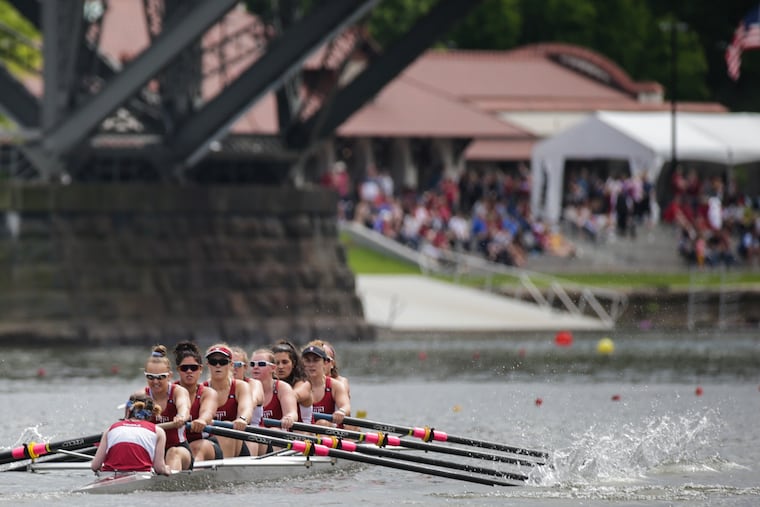Dad Vail officials cancel 2020 regatta on the Schuylkill because of coronavirus
Dad Vail Regatta Organizing Committee president Jim Hanna said the cancellation was necessary to "comply with government recommendations." The regatta drew more than 3,500 rowers last year.

Two days after expressing a desire to find a way to stage the Dad Vail Regatta on schedule in May, officials announced Thursday that the massive event on the Schuylkill had been canceled “in order to comply with government recommendations” stemming from the coronavirus pandemic.
Jim Hanna, president of the Dad Vail Regatta Organizing Committee, said the decision was made Thursday morning in a conference call with board members. He said the more than 20 members on the call all voted to cancel what would have been the 82nd regatta.
“It’s been a rapidly evolving process,” Hanna said. “The accelerated rate at which the nation has been affected is far more serious. The way our lives are being dominated, we came to the conclusion — and it was unanimous — that we had to cancel."
Hanna said the ruling by the NCAA to cancel all spring sports championships, plus the decision by conferences to do away with spring sports competitions and team activities, would seriously curtail participation by women’s crews. He said the men’s crews that traditionally participated in the regatta, many of which are club teams, also faced a hardship.
“We are aware and disappointed that the current health crisis has caused many traditional Dad Vail schools to cancel their season, and the impact that has had on coaches and athletes,” he said.
The regatta had been planned for May 8 and 9. More than 100 men’s and women’s teams and 3,500 rowers competed last year. Hanna had said in an interview Tuesday that about 30 teams had registered for the 2020 regatta.
Hanna added in that interview that the safety of everyone involved was the regatta’s first concern, and that all emergency health protocols announced by the federal, state and city governments would be followed.